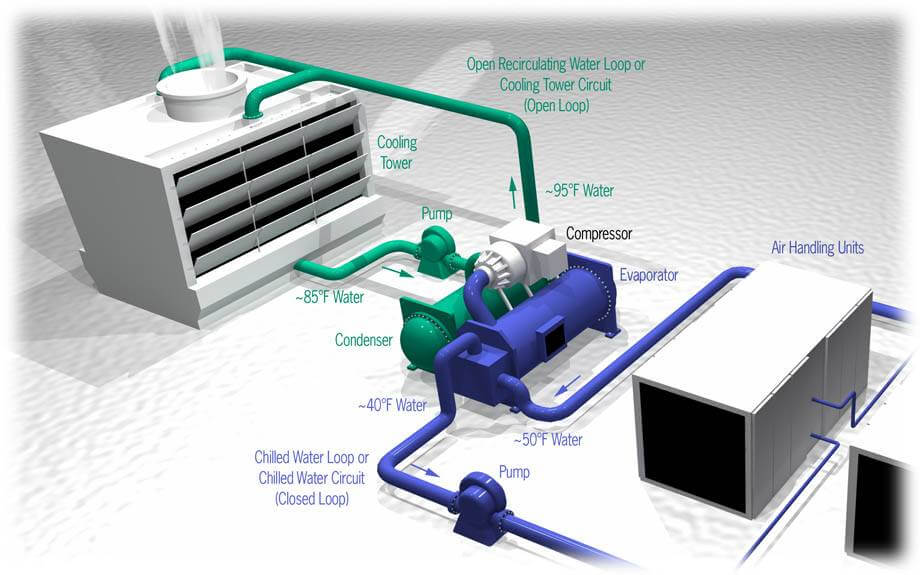Quick And Trusted Furnace Repair For Homes And Businesses
Quick And Trusted Furnace Repair For Homes And Businesses
Blog Article
Your Guide to Choosing the Right HVAC System for Your Needs
Picking an ideal A/c system is an important decision that can significantly affect comfort and power effectiveness in your home. Additionally, recognizing the different kinds of systems offered and their power scores can help lead your option.
Recognizing A/c System Types
When picking an a/c system, it is important to recognize the different kinds offered to meet your certain needs. The main categories of a/c systems consist of central air systems, ductless mini-split systems, heatpump, and furnace systems.
Air conditioning systems are developed to cool down numerous rooms utilizing ductwork to disperse conditioned air. They are optimal for bigger homes requiring constant temperature level control. Ductless mini-split systems, on the other hand, supply adaptability and efficiency, as they permit zoning capacities, allowing private room temperature level law without the demand for ductwork.
Warmth pumps run by moving warmth instead than creating it, making them an energy-efficient alternative for both home heating and air conditioning. Alternatively, heater systems make use of burning to create warm, using either gas, electrical energy, or oil.
Each system has unique advantages and considerations, including installation needs, upkeep, and general expenses. Understanding these kinds will certainly assist house owners make informed decisions based upon their certain requirements, climate, and spending plan restraints, eventually guaranteeing optimal convenience and effectiveness.
Assessing Energy Performance
Energy effectiveness is a crucial aspect in the selection of an A/c system, as it straight impacts both energy prices and environmental sustainability. The Seasonal Energy Performance Ratio (SEER) and the Heating Seasonal Efficiency Variable (HSPF) are important indications for air conditioning systems, representing their efficiency over a common air conditioning and home heating period, respectively.
Furthermore, seek systems that have earned the power celebrity tag. This certification represents that the tools fulfills strict energy effectiveness standards set by the U.S. Epa. Consider the system's variable-speed technology, which permits a lot more reliable procedure by adjusting the result to match demand, better enhancing power savings.
Moreover, proper insulation and air duct securing can substantially affect the system's overall performance. In summary, selecting an energy-efficient heating and cooling system not only decreases your power costs however additionally adds to an extra lasting setting, making it an essential consideration in your purchasing process.
Assessing System Dimension
Picking the ideal dimension for an a/c system is vital to making sure ideal performance and efficiency. A small system might have a hard time to preserve desired temperature levels, causing boosted deterioration, higher power usage, and decreased comfort. Alternatively, an extra-large system can cause rapid biking, which not just causes inefficiencies yet likewise affects moisture control and air high quality.
To assess the excellent sizing, it is vital to carry out a lots computation, which considers aspects such as the square video footage of the room, insulation levels, window dimensions, and local environment conditions - furnace repair. This estimation assists determine the British Thermal Devices (BTU) required for heating & cooling. In addition, it is important to make up particular demands, such as the variety of owners and the presence of heat-generating devices

Installation Costs and Spending Plan
A thorough understanding of installment prices is crucial for services and house owners thinking about a new HVAC system. The complete expenditure of setup can vary extensively based upon a number of elements, including the sort of system, the intricacy of installation, and the area of the building. Usually, setup prices can vary from $3,000 to $10,000, depending on the system's dimension and effectiveness.
When budgeting for a heating and cooling system, it is crucial to take into consideration not only the first setup costs yet also any kind of extra expenses that might arise, such as ductwork alterations, electrical upgrades, or authorizations. Furthermore, it is suggested to acquire numerous quotes from accredited HVAC service providers to guarantee affordable rates.
House owners should additionally consider the possible lasting savings connected with energy-efficient systems. While the upfront expenses might be higher, energy-efficient designs can lead to considerable financial savings on utility expenses with time.

Upkeep and Durability Considerations

Proper maintenance includes routine assessments, filter substitutes, and cleaning of ducts and coils (air duct cleaning coquitlam). Neglecting these jobs can lead to decreased efficiency, increased energy costs, and premature system failing. Homeowners should also consider the availability of solution agreements, which often provide scheduled upkeep and top priority solution, making sure that the system stays in peak condition
Durability varies by system kind; for example, properly maintained air conditioning systems can last 15 to 20 years, while heat pumps might have a life-span of 10 to 15 years. Choosing a system with a solid online reputation for integrity, together with buying regular upkeep, can substantially improve the system's sturdiness. Additionally, selecting higher-efficiency versions may result in lasting financial savings on energy costs, stabilizing the initial financial investment with time.
Verdict
In conclusion, choosing an ideal HVAC system requires cautious navigate to this website factor to consider of various elements, consisting of system kinds, power efficiency, and size. Eventually, an educated choice will enhance comfort and effectiveness in household settings while making the most of energy cost savings.
Picking an ideal HVAC system is a crucial decision that can substantially influence convenience and power performance in your home.Power performance is an essential factor in the selection of a HVAC system, as it directly impacts both utility costs and environmental sustainability. The Seasonal Power Performance Proportion (SEER) and the Home Heating Seasonal Efficiency Aspect (HSPF) are crucial indicators for air conditioning systems, representing their effectiveness over a normal cooling and home heating period, respectively. Selecting a system with a solid reputation for reliability, along with spending in normal maintenance, can dramatically improve the system's longevity.In conclusion, picking an ideal Cooling and heating system demands cautious consideration of various variables, Full Article consisting of system types, energy performance, and dimension.
Report this page